Are you struggling to keep up with the ever-evolving world of marketing? Is your current strategy not producing the results you desire? It’s time to stay ahead of the game and transform your marketing strategy with media planner tools.
In this article, we will explore how media planner tools can revolutionize your approach to marketing. From keyword research to competitor analysis, these tools provide you with invaluable insights that can inform your decision-making process.
By leveraging media planner tools, you can identify the most effective platforms and channels to reach your target audience. This allows you to maximize your advertising budget and ensure that your message reaches the right people at the right time.
But it doesn’t stop there. These tools also offer advanced analytics and reporting capabilities, enabling you to monitor the performance of your campaigns and make data-driven adjustments for optimal results.
Don’t let your marketing strategy fall behind. Discover how media planner tools can help you stay ahead of the competition and achieve your marketing goals.

Benefits of using media planner tools
Media planner tools offer a wide range of benefits that can significantly impact your marketing strategy. Let’s take a closer look at some of the key advantages they provide.
1. Efficient and Effective Planning
Media planner tools streamline the planning process by providing you with a centralized platform to manage your campaigns. From creating media plans to setting budgets and scheduling ads, these tools simplify the entire planning workflow.
This efficiency allows you to save time and focus on other crucial aspects of your marketing strategy.
2. In-Depth Audience Insights
One of the most significant advantages of media planner tools is their ability to provide detailed audience insights. These tools analyze vast amounts of data to help you understand your target audience better.
You can gain valuable information such as demographics, interests, online behavior, and preferences, allowing you to tailor your marketing messages and campaigns to resonate with your audience effectively.
3. Competitor Analysis
Media planner tools provide you with the ability to analyze your competitors’ strategies and tactics. By understanding what your competitors are doing, you can identify gaps in the market and leverage opportunities to gain a competitive edge.
These tools enable you to monitor your competitors’ ad placements, messaging, and overall marketing efforts, helping you refine your own strategies accordingly.
4. Optimized Budget Allocation
Another significant benefit of media planner tools is their ability to optimize your advertising budget. These tools analyze various factors such as audience reach, cost per click, and conversion rates to recommend the most effective platforms and channels for your campaigns.
By allocating your budget to the right channels, you can maximize your ROI and achieve better results with your marketing efforts.
5. Real-Time Performance Monitoring
Media planner tools provide you with real-time performance monitoring and analytics. You can track the performance of your campaigns, measure key metrics, and gain insights into what’s working and what’s not.
This data-driven approach allows you to make informed decisions and optimize your campaigns for better results. Whether it’s adjusting ad placements, targeting specific demographics, or refining your messaging, media planner tools empower you to make data-driven adjustments on the fly.
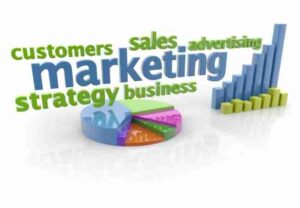
Choosing the right media planner tools for your business
Selecting the right media planner tool for your business is crucial to achieving your marketing goals. Consider the following factors when evaluating different options:
1. Features and Capabilities
Assess the features and capabilities offered by each media planner tool. Look for tools that align with your specific requirements and offer the functionalities you need to enhance your marketing strategy effectively.
2. Ease of Use
Evaluate the user interface and ease of use of the media planner tool. Consider tools that are intuitive and user-friendly, allowing you to navigate and utilize the tool without extensive training or technical expertise.
3. Integration
Check if the media planner tool integrates with your existing marketing tools and platforms. Seamless integration ensures that your campaigns run smoothly and that data is shared across different systems.
4. Customer Support
Consider the level of customer support provided by the media planner tool provider. Look for tools that offer responsive customer support, including technical assistance, training resources, and ongoing support.
5. Pricing
Evaluate the pricing structure of the media planner tool. Consider your budget and the value that the tool provides. Look for tools that offer flexible pricing plans to accommodate your specific needs.
Remember, choosing the right media planner tool is an investment in your marketing strategy. Take the time to thoroughly evaluate your options and select a tool that aligns with your business objectives.
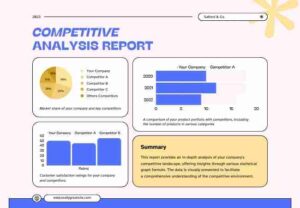
Case studies: Success stories using media planner tools
To further illustrate the impact of media planner tools on marketing strategies, let’s explore some success stories from businesses that have leveraged these tools effectively.
1. Company X
Company X, a leading e-commerce retailer, used a media planner tool to optimize their ad placements. By analyzing audience data and performance metrics, they identified specific platforms and channels that yielded the highest conversion rates.
By allocating their budget accordingly, they were able to increase their ROI by 30% and generate a significant boost in sales.
2. Company Y
Company Y, a software-as-a-service (SaaS) provider, utilized a media planner tool to refine their messaging and targeting parameters. By analyzing audience insights and competitor strategies, they tailored their marketing messages to resonate with specific segments.
As a result, they experienced a 40% increase in click-through rates and a 25% increase in conversions.
3. Company Z
Company Z, a local restaurant chain, employed a media planner tool to optimize their local advertising campaigns. By analyzing location data and audience demographics, they identified specific areas and platforms where their target audience was most active.
By focusing their efforts on these areas, they achieved a 50% increase in foot traffic and a significant boost in brand awareness.
These success stories demonstrate the transformative power of media planner tools in driving better results and achieving marketing goals. By leveraging these tools effectively, businesses of all sizes and industries can enhance their marketing strategies and stay ahead of the competition.
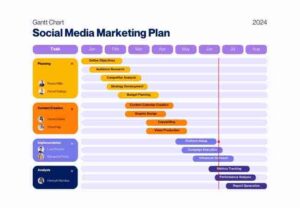
Best practices for using media planner tools
To make the most out of your media planner tools, consider implementing the following best practices:
1. Set Clear Goals
Define clear and measurable goals for your marketing campaigns. This will help you align your strategies and tactics with your overall business objectives.
2. Invest in Training
Ensure that your marketing team receives proper training on how to use the media planner tool effectively. This will maximize their ability to leverage the tool’s features and capabilities.
3. Regularly Monitor and Analyze
Continuously monitor the performance of your campaigns and analyze key metrics. This will help you identify areas for improvement and make data-driven adjustments for better results.
4. Stay Updated
Keep up with the latest trends and updates in the marketing industry. Media planner tools often release new features and functionalities that can enhance your strategies.
5. Collaborate and Share Insights
Encourage collaboration and knowledge sharing within your marketing team. This will foster a culture of continuous improvement and enable you to leverage the collective expertise of your team.
By following these best practices, you can maximize the effectiveness of your media planner tools and achieve optimal results with your marketing campaigns.

Integrating media planner tools with other marketing tools
To create a holistic and integrated marketing strategy, consider integrating your media planner tools with other marketing tools. This integration allows you to leverage the strengths of different tools and platforms for maximum impact. Here are some examples:
1. CRM Integration
Integrate your media planner tool with your customer relationship management (CRM) software. This integration enables you to track and analyze customer data, segment your audience, and personalize your marketing messages based on customer preferences and behaviors.
2. Marketing Automation Integration
Connect your media planner tool with your marketing automation platform. This integration allows you to automate various marketing processes, such as email campaigns, lead nurturing, and customer onboarding.
By combining the insights from your media planner tool with marketing automation, you can create personalized and targeted campaigns at scale.
3. Analytics Integration
Integrate your media planner tool with your analytics platform. This integration enables you to track and measure the performance of your campaigns in real-time. By combining the data from your media planner tool with analytics, you can gain a comprehensive view of your marketing efforts and make data-driven decisions.
4. Social Media Integration
Connect your media planner tool with your social media management platform. This integration allows you to schedule and optimize your social media posts based on audience insights and performance data. By leveraging the strengths of both tools, you can maximize your social media reach and engagement.
By integrating your media planner tool with other marketing tools, you can create a cohesive and integrated marketing strategy that drives better results and enhances the overall effectiveness of your campaigns.

Training and resources for using media planner tools effectively
To ensure that you and your team are equipped with the necessary skills to use media planner tools effectively, consider the following training and resources:
1. Vendor Training
Many media planner tool providers offer training resources and documentation to help you get started. Take advantage of these resources to familiarize yourself with the tool’s features and capabilities.
2. Online Tutorials and Courses
Explore online tutorials and courses that focus on media planner tools. Platforms such as Udemy, Coursera, and LinkedIn Learning offer a wide range of courses that can help you enhance your skills and maximize the potential of these tools.
3. Webinars and Workshops
Attend webinars and workshops hosted by media planner tool providers or industry experts. These events provide valuable insights and practical tips for using the tools effectively.
4. Industry Blogs and Forums
Stay updated with the latest trends and best practices in the industry by following relevant blogs and participating in forums. These platforms offer a wealth of information and foster discussions that can help you gain valuable insights.
5. Internal Training and Knowledge Sharing
Foster a culture of continuous learning within your marketing team. Encourage knowledge sharing sessions, where team members can share their experiences and insights on using media planner tools effectively.
By investing in training and leveraging various resources, you can ensure that you and your team are well-equipped to use media planner tools effectively and achieve your marketing goals.
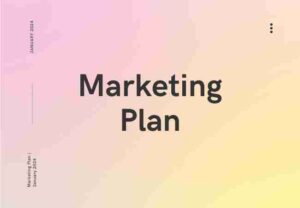
Conclusion: Harnessing the power of media planner tools for your marketing success
Media planner tools have become indispensable in the ever-evolving world of marketing. By leveraging these tools, you can transform your marketing strategy and stay ahead of the competition.
From efficient and effective planning to in-depth audience insights and optimized budget allocation, media planner tools provide a wide range of benefits that enhance your marketing efforts.
These tools enable you to make data-driven decisions, improve targeting, allocate resources efficiently, and continuously optimize your campaigns for better results.
To harness the full power of media planner tools, it’s essential to choose the right tool for your business, implement best practices, integrate with other marketing tools, and invest in training and resources.
Don’t let your marketing strategy fall behind. Embrace the power of media planner tools and unlock the potential.

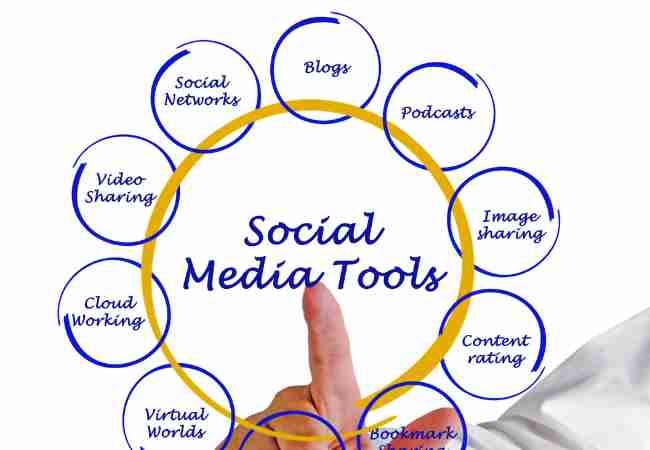
deneme bonusu veren siteler
I don’t think the title of your article matches the content lol. Just kidding, mainly because I had some doubts after reading the article.
child porn
Thanks for sharing. I read many of your blog posts, cool, your blog is very good.
Apple cider vinegar can decrease potassium levels buy priligy in uae
Thanks for sharing. I read many of your blog posts, cool, your blog is very good.
Porno kostenlos herunterladen! Türkische Escort-Anzeigen jetzt ansehen!
gCPzXXrO rSDiS uXLeSdo DKFzSWb myfxI
Thanks for sharing. I read many of your blog posts, cool, your blog is very good.
Your point of view caught my eye and was very interesting. Thanks. I have a question for you.
OkEpaK eyXMQF RLXDu QsrN
sQoufgF uzSSj UtoZchjj
xPcqQU VvOasku MOk crl uin OOQL OsHRijLY
Your point of view caught my eye and was very interesting. Thanks. I have a question for you.
wpLK jZGP hIKh raO Dwrv hMsFm
I enjoyed reading this, thanks for sharing!
Your point of view caught my eye and was very interesting. Thanks. I have a question for you.
Puraburn There is definately a lot to find out about this subject. I like all the points you made
I appreciate your work, thanks for all the interesting articles.